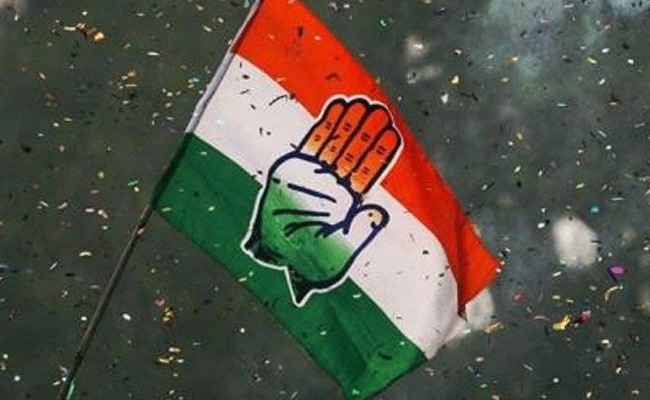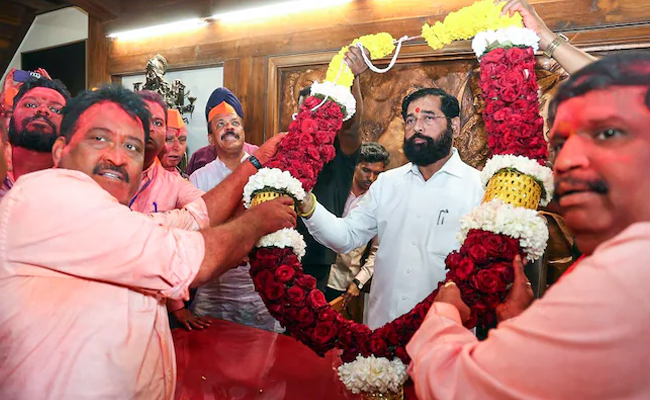New Delhi (PTI): The Congress on Saturday announced its first list of 124 candidates for the upcoming assembly elections in Karnataka with former chief minister Siddaramaiah being fielded from his Varuna seat.
Pradesh Congress Committee chief DK Shivakumar will contest the elections from his Kanakapura assembly constituency, according to the list.
The party has fielded former deputy chief minister G Parameshwara from the Koratagere (SC) constituency. Former ministers KH Muniappa and Priyanka Kharge will contest from Devanahalli and Chitapur (SC), respectively. Priyanka is the son of Congress chief Mallikarjun Kharge.
The party's central election committee cleared the first list of candidates after a meeting in Delhi on March 17. The committee is chaired by Congress chief Kharge. Rahul Gandhi was also present at the meeting.
The Congress is the first party to release its candidates' list for the elections in Karnataka. The Election Commission is yet to announce the schedule for assembly polls in the southern state.
Assembly polls in Karnataka are slated before May when the tenure of the current assembly ends.
The Congress is seeking to wrest power from the BJP in the southern state.
Here is the first list of Congress candidates finalised by the CEC for the forthcoming Karnataka assembly elections. pic.twitter.com/MeySmYLPev
— Congress (@INCIndia) March 25, 2023
Let the Truth be known. If you read VB and like VB, please be a VB Supporter and Help us deliver the Truth to one and all.
Madrid (AP): Disallowed goals, hitting the woodwork five times, and great saves.
It was just too much for Barcelona to overcome on Sunday as it lost 2-1 to Real Sociedad in the Spanish league to see its 11-game winning streak come to an end.
Barcelona had three goals disallowed — as well as a penalty-kick call reversed by video review — in the first half alone. It had five attempts hit the woodwork, including an 84th-minute header by Jules Koundé from close range, and Sociedad goalkeeper Álex Remiro made a series of impressive saves.
"Disappointed, we created a lot of opportunities. The result does not reflect our game," Barcelona coach Hansi Flick said.
"Sometimes it's like that. At the end, there are some days you invest a lot of energy and at the end you are unlucky. I appreciate a lot what I saw."
The loss left the Catalan club one point ahead of second-place Real Madrid, which beat Levante 2-0 at home on Saturday.
It was the second consecutive win for Sociedad, which moved to eighth place.
"Three amazing points," said Remiro. He made one terrific close-range save off a header by Robert Lewandowski in the second half.
Mikel Oyarzabal put the hosts ahead with a volley by the far post in the 32nd minute. Barcelona equalized with a header from Marcus Rashford in the 70th but a minute later Gonçalo Guedes put Sociedad ahead again with a shot from inside the area.
Barcelona had plenty of chances throughout the match. It thought it had taken the lead a few minutes into the game when Fermín López scored with a low shot from outside the area, but the goal was disallowed by video review for a foul by Dani Olmo on Sociedad's Takefusa Kubo in the buildup.
Barcelona also had a goal by Frenkie de Jong called back for offside in the 21st and another by Lamine Yamal in the 27th.
Yamal was awarded a penalty in first-half stoppage time but the call was reversed because he was offside.
"We played well, had many scoring opportunities," De Jong said.
"We deserved to win. We need to be able to capitalize on these chances."
Sociedad's Carlos Soler was sent off in the 88th for a hard foul.
Barcelona had won 11 in a row across all competitions in a streak that included a 2-1 victory over Real Madrid in the final of the Spanish Super Cup in Saudi Arabia last weekend. It hadn't lost since a 3-0 road defeat against Chelsea in the league phase of the Champions League.
Its last Spanish league loss had been a 2-1 defeat against Real Madrid in the first clasico of the season at the Santiago Bernabeu Stadium in October.
Barcelona forward Raphinha was not included in the squad for Sunday's match. João Cancelo made his debut off the bench in the second half after recently signing with the Catalan club.
Kubo had to be taken off the field on a stretcher in the second half because of an injury.
Sorloth winner for Atletico
====================
Alexander Sorloth scored early in the second half to give Atletico Madrid a 1-0 home win over relegation-threatened Alaves.
Sorloth struck in the 48th minute with a firm header from near the penalty spot after Pablo Barrios crossed from the right flank. The ball hit the post at the far corner before going in.
It was the 10th start in 19 league games for Sorloth this season. The Norway forward has six goals, three with headers.
Alaves, winless in five straight league games, came close to equalizing a few times late in the match at the Metropolitano stadium in the Spanish capital.
Alaves has seven losses in its last nine league games, with its only win, 1-0, against Real Sociedad in December.
Earlier Sunday, Valencia moved out of the relegation zone by winning 1-0 at Getafe with an 84th-minute goal by José Gayà.
The result ended Valencia's six-game winless streak in the league. Getafe is now winless in six consecutive league games, with five losses.
Celta Vigo routed 10-man Rayo Vallecano 3-0 at home. The visitors played with 10 men from the 66th after Nobel Mendy was sent off for a hard foul after VAR review.
It was the third win in a row for Celta, which is seventh. Rayo is 13th.





